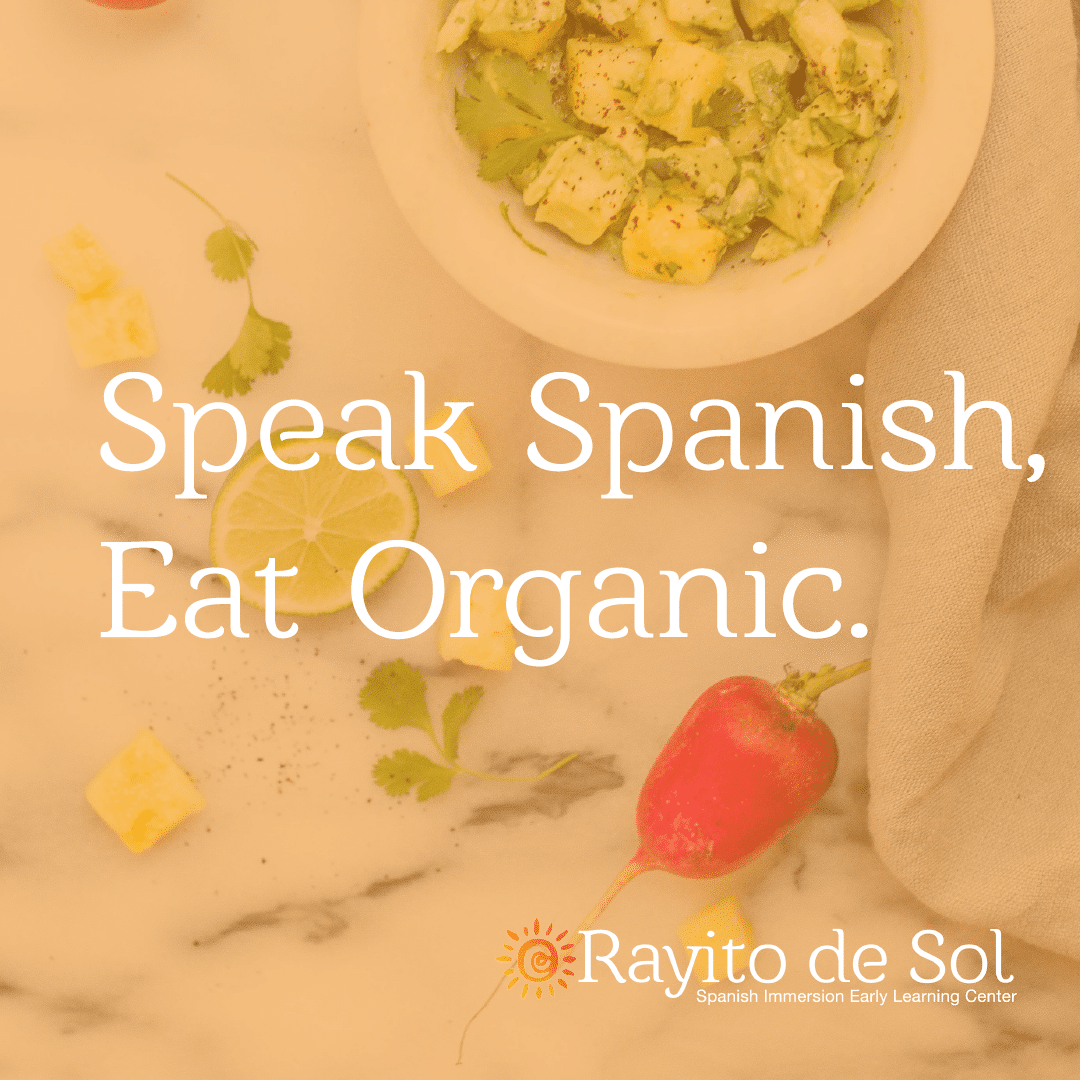Speak Spanish. Eat Organic. Read the Stats.
If you have children or are expecting, eating organic is probably on your mind.
“Babies eat more than adults, pound for pound, and are more vulnerable to environmental toxins,” says Alan Greene, MD, pediatrician and author of Raising Baby Green. As children continue to grow, they are more susceptible to harmful toxins in pesticides.
When organic plants are exposed to pests, they respond by producing their own protection, and then, we reap those benefits, and your children will too.
The following stats are reproduced from a whitepaper published by HelpGuide.org. It’s definitely food for thought.
> Organic produce contains fewer pesticides. Chemicals such as fungicides, herbicides, and insecticides are widely used in conventional agriculture and residues remain on (and in) the food we eat.
> Organic food is often fresher because it doesn’t contain preservatives that make it last longer. Organic produce is often (but not always, so watch where it is from) produced on smaller farms near where it is sold.
> Organic farming is better for the environment. Organic farming practices reduce pollution, conserve water, reduce soil erosion, increase soil fertility, and use less energy. Farming without pesticides is also better for nearby birds and animals as well as people who live close to farms.
> Organically raised animals are NOT given antibiotics, growth hormones, or fed animal byproducts. Feeding livestock animal byproducts increases the risk of mad cow disease (BSE) and the use of antibiotics can create antibiotic-resistant strains of bacteria. Organically-raised animals are given more space to move around and access to the outdoors, which help to keep them healthy.
> Organic meat and milk are richer in certain nutrients. Results of a 2016 European study show that levels of certain nutrients, including omega-3 fatty acids, were up to 50 percent higher in organic meat and milk than in conventionally raised versions.
> Organic food is GMO-free. Genetically Modified Organisms (GMOs) or genetically engineered (GE) foods are plants whose DNA has been altered in ways that cannot occur in nature or in traditional crossbreeding, most commonly in order to be resistant to pesticides or produce an insecticide.
Speak Spanish. Eat Organic at Rayito de Sol. Check out our organic menus here.











